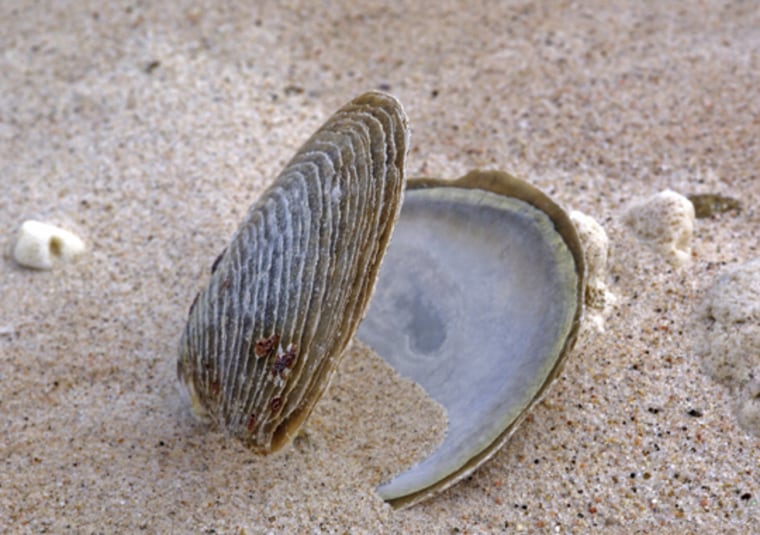On the banks of the Saigon River in Vietnam, researchers have just completed tests on a new way to combat water pollution that could save millions of lives in coastal cities throughout the developing world.
In factories on the outskirts of Ho Chi Minh City, Stephan Kohler of the Graz University of Technology in Austria and a team of researchers have cleansed water tainted with toxic metals like cadmium, zinc, lead and iron. And they've done it using nothing but one of the cheapest, most abundant material around: seashells.
Like many developing countries, Vietnam is plagued by poor water quality — millions of the country's inhabitants still lack access to clean drinking water, largely because local companies can't afford expensive filtration systems to treat wastewater.
Kohler's team has found that pouring metal and acid-laden water over a bed of crushed clam or mussel shells provides an easy fix. The shells are made of aragonite, a form of calcium carbonate (CACO3) that readily swaps out its calcium atoms in favor of heavy metals, locking them into a solid form. The shells are naturally basic, too — when dissolved they have a pH of 8.3.
"If pH gets below neutral 7 the shells start leeching metals and become toxic again, and that's a problem" Kohler said. "But if you're worried about that, you can always add extra shells to keep the pH above neutral."
The team's technique stems from work in 2003 by Manuel Prieto of Oviedo University in Spain, who first showed that shells effectively remove cadmium from water.
"The idea of using aragonite shells arose because abiogenic aragonite is not an extremely abundant mineral," Prieto wrote in an email to Discovery News. "Moreover, in the North of Spain we have a very important seafood canning industry (cockles, mussels, clams, etc.) and shells are the most important wastes of that industry."
Prieto's work focused on removing cadmium in a controlled laboratory environment. Kohler's team has now expanded that to include a suite of heavy metals, including lead, a potent toxin. Their work in Vietnam also shows that the technique works on wastewater produced from real-world factory processes.
Developed countries can afford more sophisticated filtration techniques and likely won't resort to using shells. But Kohler and his team believe that coastal communities in the developing world will be able to greatly reduce the public health risk posed by toxic heavy metals in their water supplies.
